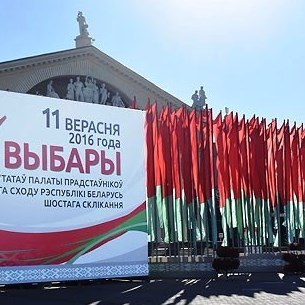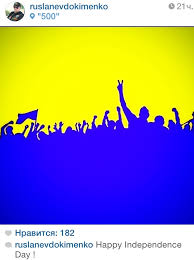It would be an exaggeration to say that Minsk did everything it could to please the West during the parliamentary elections that took place in Belarus this past Sunday. But it has certainly done enough to make sure that the ongoing rapprochement between the two will not be jeopardized.
During the campaign, the opposition was treated far more liberally than previously. Post-election protest efforts were not large and passed uneventfully with a strong police presence.
As for noteworthy results, one candidate from the political opposition and one from civil society managed to claim seats in the parliament, the first time this has happened since 2000. And only 28 out of 110 members of the previous parliament were reelected. The number of female MPs increased from 29 to 38, or 34 percent of the total membership in the newly elected House of Representatives (up from 26 percent). (The upper chamber, the Council of the Republic, is not directly elected by the population.)
The OSCE monitors’ preliminary assessment is that much more could have been done to bring Belarus closer to election standards, but they also found that cooperation with the authorities was “constructive.”
Does this imply that the “winds of change” are blowing in Belarus?
Many in the country itself will not find the picture “rosy.” Some will draw attention to the extremely high levels of early voting (more than 30 percent of the electorate), which is usually a lot less transparent for observers than voting on election day. Others will point out a contradiction between the sky-high officially reported turnout of almost 75 percent and massive anecdotal evidence of empty polling stations.
Commentators found it hardly coincidental that United Civic Party opposition representative Anna Kanopatskaya won in the very same district where Tatyana Korotkevich, a former presidential candidate and leader of the Tell the Truth opposition group, also ran. In the pundits’ view, this puts the whole process in doubt while at the same time promising further discord within opposition ranks.
Paradoxically, though, both hopefuls and skeptics may have a point. As ironically observed by Belarusian journalist Artem Shraibman, when somebody has a bucket with a hundred holes in it, patching two or three of them does not change anything, but “progress” can be registered. In these elections, enough of the right “boxes were ticked” on the West’s scorecard for Alexander Lukashenko to make both parties feel “satisfied.”
The problem is that the Belarusian parliamentary elections matters very little.
What matters instead is the quickly worsening Belarusian economic situation. In 2015, Belarusian GDP fell by 3.7 percent, and in the first half of 2016 by another 2.7 percent. Minsk has $3.3 billion of foreign debt due in 2016, and $3.4 billion due in 2017. The gold and currency reserves of Belarus are currently at $4.7 billion, but this will not even cover two months of imports. Hard currency revenues are not to be expected. Over January-June 2016, Belarusian exports decreased by 19%, out of which those to Europe decreased by 32 percent, and to China by an appalling 80 percent.
The West does not have the appetite to bail out Belarus and replace Russia as the main source of subsidies for the Minsk treasury. All the EU (and Belarus) can do is “play on the margins” and persuade European financial institutions to allocate some project funds. But it is clear that without a large macroeconomic package from the IMF, which would be conditional on the launch of real economic reforms, the situation will not critically improve. In turn, any such reforms are prone to produce social discontent, which makes the regime even more reluctant.
Analysts will soon forget about Belarus’s 2016 parliamentary elections. There have been only cosmetic changes in the Belarusian political system. However, it will be very interesting to see for how long the positive momentum in Belarusian-Western relations can be maintained, particularly if Western funds do not follow the current rhetoric of partnership.











